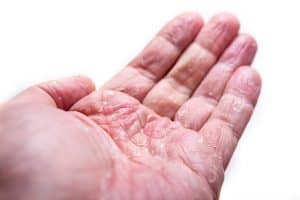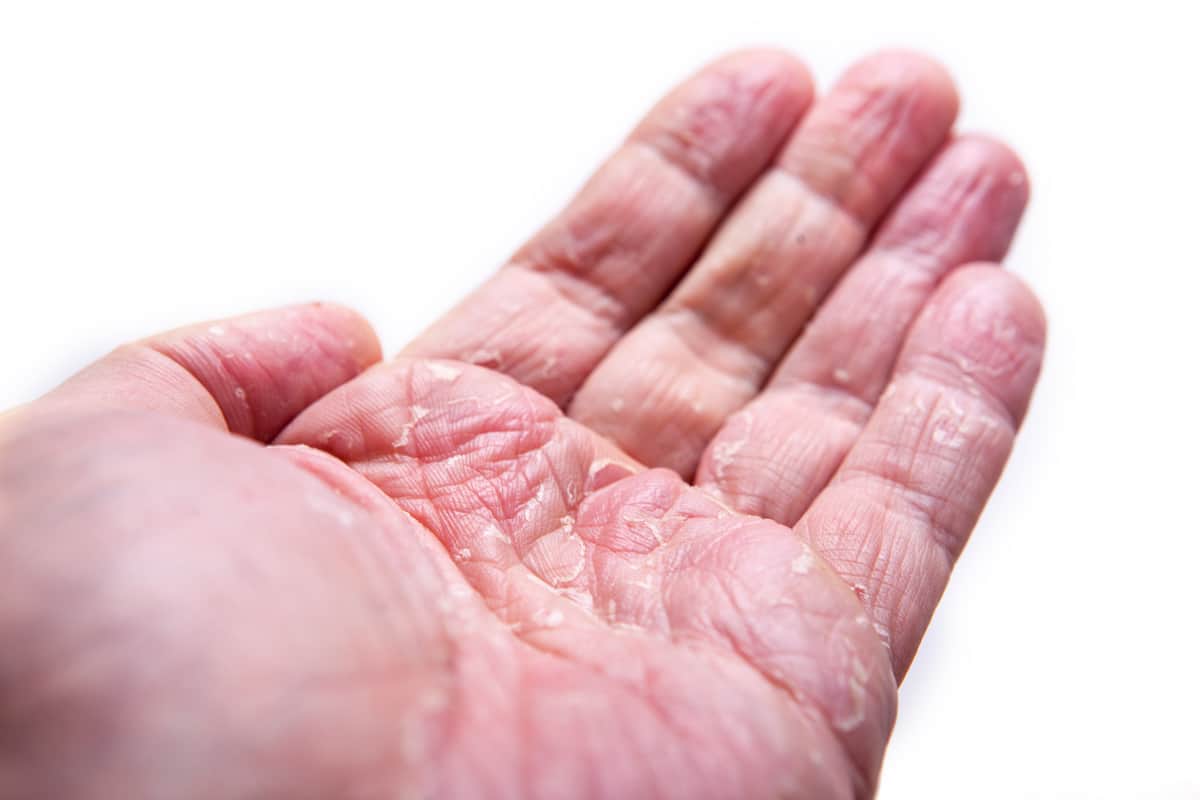
Do you suffer from dry, itchy, scaly skin? You’re not alone. Both psoriasis and eczema are common skin conditions that affect millions of Americans. Eczema and psoriasis can look very similar to the untrained eye. Both conditions have red, scaly patches of skin. They have similar appearances but are also very different.
“Normal” skin takes about a month for the skin cells to regenerate, however, people with psoriasis this process usually happens every three to four days. The most common type of psoriasis appears with red patches and typically silvery, white coating of dead skin cells, this is called plaque psoriasis. Plaque Psoriasis is typically found on the scalp, elbows, knees, lower back and genitals, but it can however show up anywhere on the body. These patches are prone to cracks and bleeding and are often times painful and itchy.
There are other less common forms of psoriasis such as Guttate psoriasis, which typically begins in childhood and can be triggered by a strep infection. Pustular psoriasis which affects the hands and feet typically has the appearance of pus-filled blisters. A rarer and more severe form of psoriasis is known as Erythrodermic psoriasis. This is widespread throughout the entire body and the itching and pain is very intense and can cause extreme discomfort.
Eczema tends to be more common, affecting an estimated 30 million Americans. Eczema typically looks red and scaly. Skin affected by eczema is also typically very itchy and have cracked, raised, bumpy skin. Contact dermatitis is another form of eczema that typically happens when new chemicals are introduced to the body such as different laundry soap, poison ivy, or other skin care products.
Psoriasis and eczema are totally different conditions; however, they have very similar treatments. There is no cure for either of the two conditions, but topical ointments can help reduce redness and inflammation, this is typically the first step in finding the right treatment. If you have tried topical treatments and haven’t had the relief you’re seeking, a dermatologist will be able to perform ultraviolet light therapies to help reduce redness and inflammation. Please call our office to schedule your consultation so we can help make a treatment plan to best fit your needs.
Disclaimer: This blog provides general information and discussion about medical, cosmetic, mohs, and surgical dermatology. The words and other content provided in this blog, and in any linked materials, are not intended and should not be construed as medical advice. If the reader or any other person has a medical concern, he or she should consult with an appropriately-licensed dermatologist or other health care worker.
